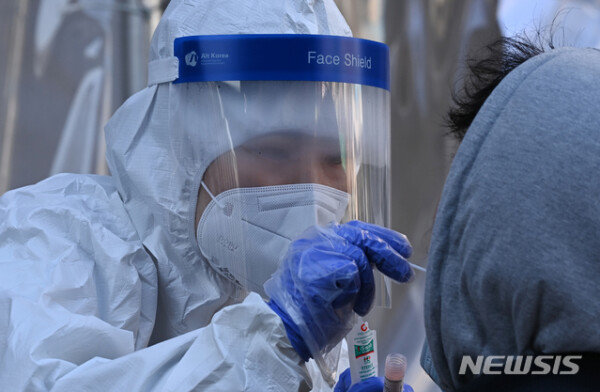China has put in place measures to “guide the public” as the Chinese travel back to their hometowns on the Spring Festival, urging them instead to stay in their work city for the next vacation. The measures include mandatory nucleic acid testing within seven days before travel, a 14-day home medical surveillance period, and an additional financial bonus for workers who choose not to travel.
At least 29 provinces and municipalities have taken such measures to avoid the risk of the virus spreading during the Chunyun period (peak of Lunar New Year travel), known as the largest annual human migration in the world.
Chinese officials told a press conference on Wednesday that this year’s Chunyun is expected to see nearly 1.7 billion trips in total, with a daily average of 40 million trips. That number is 40% lower than in 2019 but 10% higher than in 2020, officials said.
People must show negative nucleic acid test results within seven days of travel. For those returning to rural areas, they must also undergo a 14-day home medical follow-up after arrival, according to a national anti-epidemic plan released by the National Health Commission on Wednesday.
During the period of medical surveillance, they will be prohibited from traveling and will have to undergo nucleic acid tests every seven days. They will have to pay the costs of the test themselves, the authorities said.
The ad immediately appeared trending on social media, sparking heated discussions online. The hashtag “Nucleic acid test negative in the seven days before traveling during the Spring Festival” had garnered nearly 420 million views at the time of this article’s publication.
Some praised the measures, saying they understand the need for national security, but others said it was just a one-size-fits-all approach for many very different cases.
Observers contacted by the Global Times noted that such stringent measures would make a large majority think twice before deciding to return to their home province during the holidays.
Wang Guangfa, a respiratory disease expert at Peking University First Hospital, said the potential risks of a COVID-19 rebound should not be underestimated, given the large number of people traveling during the Chunyun. “Otherwise, the maximum efforts made by China since last year would be in vain,” he said.
An infected patient could transmit COVID-19 to at least three people, which could be followed by another cascading transmission within six days and cause unimaginable results, Wang added.
During the press conference, officials also pointed out that China faces a complicated epidemic situation, with outbreaks of infection appearing in several provinces and multiple chains of transmission manifesting in the same places.
Last week, there were 757 new local confirmed cases nationwide, and the number of medically observed contact cases reached its highest level since October, officials said.
A local government official surnamed Hu, from Heguo County in Xingai, northern Hebei Province, told the Global Times on Wednesday that having a negative nucleic acid test is mandatory for all visitors, that they come from low or high risk areas.
For people coming from low risk areas, a negative test result less than three days old is required. Those in medium and high risk areas will face quarantines and mandatory testing, Hu said, adding that local governments have started urging those working outside the township not to return.
Companies and employers are also encouraged to distribute “hongbao” (red envelopes containing money) or gift packages to their employees who choose to stay, or to organize social activities or improve their wages. As an incentive, Chen Yongjia, an official with the Ministry of Human Resources and Social Security, said at the press conference on Wednesday.
“Encouraging people to celebrate the holidays in the cities where they work should drastically reduce population flows, which will be of great importance in controlling the epidemic,” Chen said.
The Global Times has learned that some cities, such as Hangzhou in eastern Zhejiang province, are distributing grants to migrant workers who do not return to their home province. Hangzhou will offer 100 yuan ($ 15.4), while a company in Ningbo has offered shelter for married employees so they can celebrate the Lunar New Year together.
Chinese authorities have stepped up anti-epidemic controls in villages during the Spring Festival holidays, where gaps may exist, as the outbreaks of outbreaks of infection in Hebei and Heilongjiang have shown. They ordered county-level emergency response teams to remain on “high alert” during the holidays.
Villages across the country should require nucleic acid testing for everyone returning and perform routine environmental testing at places of social activity such as mahjong and chess houses.
To enjoy a safe Spring Festival, Gao Fu, director of the Chinese Center for Disease Control and Prevention, told Chinese media that everyone should develop crisis awareness in the face of a potential epidemic similar to the one which occurred in Wuhan around the same time last year.
While there is no cure for the virus to date and the country has yet to achieve collective immunity, with the mass vaccination program still ongoing, the key to preventing the spread of the virus is its early detection among populations, Gao added.
–

